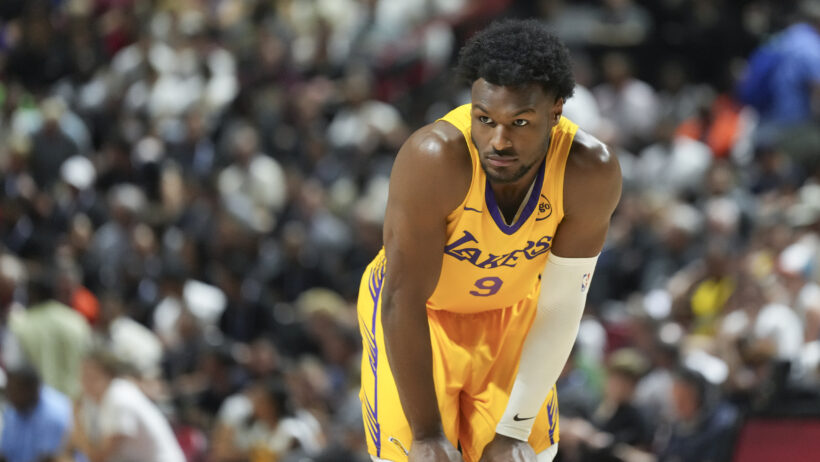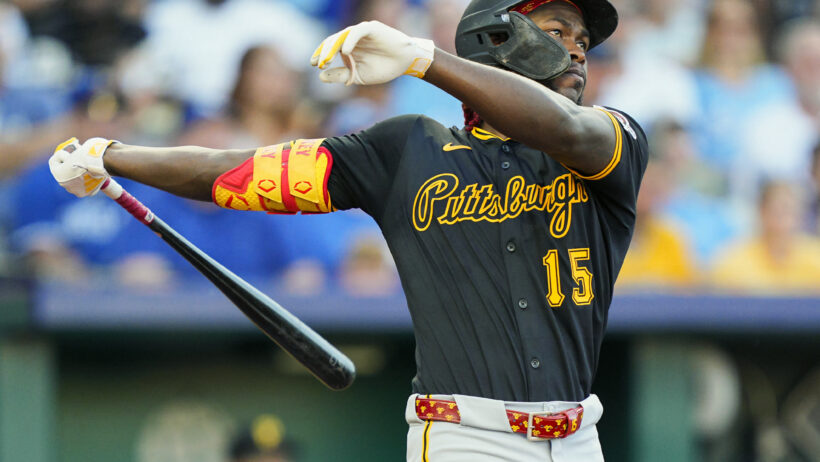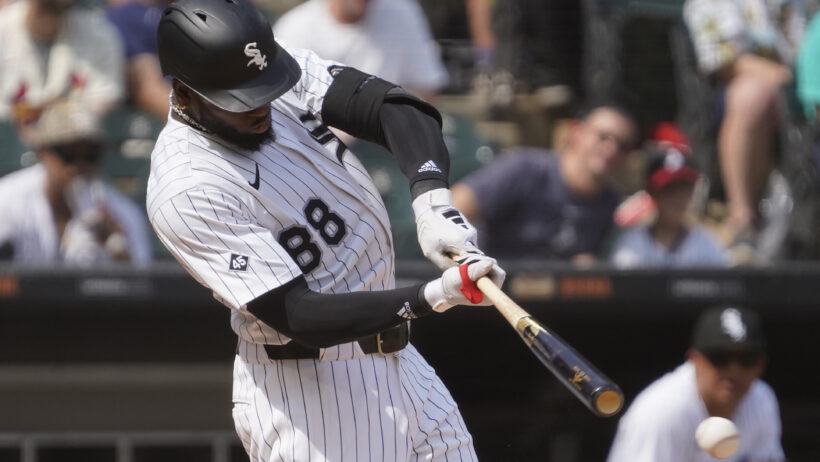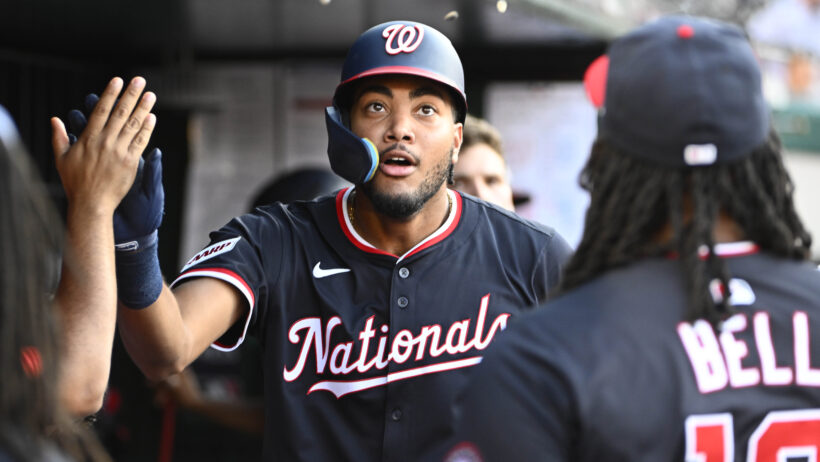Atlantic Division Odds: Leafs, Lightning, Bruins in 3-Way Dogfight
By Sascha Paruk in NHL Hockey
Updated: March 24, 2020 at 11:15 am EDTPublished:
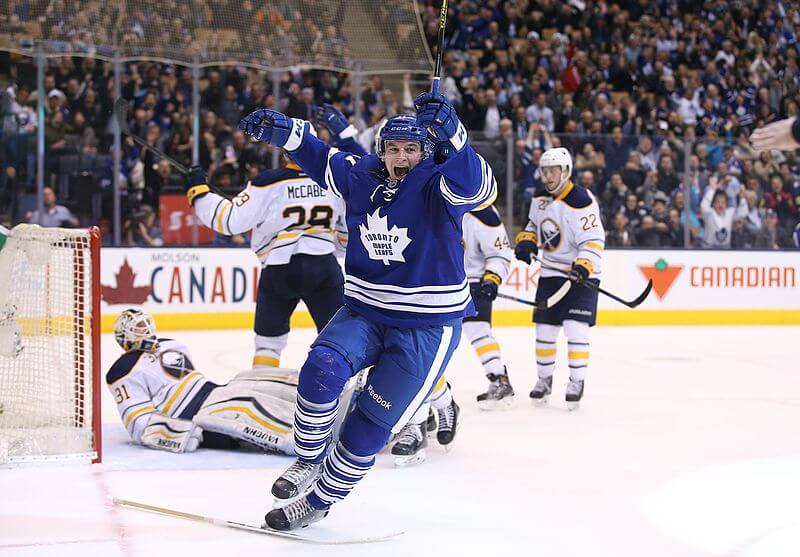
- Online betting sites have posted odds to win each NHL division
- Pittsburgh is the early favorite in the Metro even though Stanley Cup champion Washington has won it three years running
- The Devils are lumped in with the Rangers and Islanders as long-shots, even though New Jersey is coming off a 97-point season
The NHL futures sections at multiple sportsbooks now include odds to win each of the four NHL divisions in 2018-19. In general, the Atlantic is stratified into three sections: the legitimate contenders (Toronto, Tampa Bay, and Boston); the fringe candidate (Florida); and the four longshots (Buffalo, Montreal, Detroit, and Ottawa).
While some of the Atlantic teams will look markedly similar to the product we saw last season, there’s also been monumental changes for a few franchises, as John Tavares joins the Leafs, Jeff Skinner heads to Buffalo, and the Senators lose Erik Karlsson.
Below, find the full odds, each team’s 2018-19 outlook, and the best value bet to win the 2019 Atlantic title. Follow these links for the Metro, Pacific, and Central.
2018 Atlantic Division Odds
| Atlantic Division | Division WInner Odds (Sep. 15) | 2017-18 PTS | O/U 2018-19 PTS |
|---|---|---|---|
| Toronto Maple Leafs | +165 | 105 | 106.5 |
| Tampa Bay Lightning | +190 | 113 | 107.5 |
| Boston Bruins | +190 | 112 | 101.5 |
| Florida Panthers | +1600 | 96 | 94.5 |
| Buffalo Sabres | +3000 | 62 | 80.5 |
| Montreal Canadiens | +5000 | 71 | 80.5 |
| Detroit Red Wings | +6600 | 73 | 75.5 |
| Ottawa Senators | +6600 | 67 | 70.5 |
Toronto Maple Leafs
By adding John Tavares (37 G, 84 P) to an offense that already included a litany of still-improving young snipers (Auston Matthews, Mitch Marner, William Nylander), the Leafs have assembled arguably the scariest offense in the NHL. There’s a good chance they improve on their 277 goals-for, which ranked second in the entire NHL last year without the four-time 30-goal scorer.
Tavares and Marner have already flashed some chemistry in the preseason.

All the questions come at the other end as new GM Kyle Dubas has done little to improve a subpar defense corps. Unless the likes of Morgan Rielly, Jake Gardiner, and Nikita Zaitsev suddenly become a lot more reliable in their own zone, the Leafs are going to be in a lot of shootouts this year (metaphorically, not literally).
Frederik Andersen (2.81 GAA, .918 SV%) is a fine regular-season goalie, but not the Vezina candidate you need to make up for such an offensively-minded group of defensemen.
| Maple Leafs’ Key 2018 Additions | Maple Leafs’ Key 2018 Departures |
|---|---|
| Adam Cracknell (RW) | Tyler Bozak (C) |
| Tyler Ennis (C) | Leo Komarov (C) |
| Josh Jooris (C) | Matt Martin (D) |
| John Tavares (C) | Tomas Plekanec (C) |
| Roman Polak (D) | |
| James Van Riemsdyk (LW) |
Tampa Bay Lightning
While they lost the Erik Karlsson sweepstakes to San Jose and didn’t make any other notable acquisitions, Tampa remains arguably the most balanced team in the division. Nikita Kucherov (39 G, 100 P) has developed into one of the most dangerous individual playmakers in the league and Steven Stamkos (27 G, 86 P) remains a scoring-threat anytime he gets a shot off within 40 feet of the net.
The emergence of Brayden Point (32 G, 66 P) and Yanni Gourde (25 G, 64 P) on the second line helped Tampa rack up an NHL-best 296 goals last season.

Unlike Toronto, the Lightning pair their elite offense with one of the best defensemen around in reigning Norris Trophy-winner Victor Hedman (17 G, 63 P, +32). Given how well fellow d-man Mikhail Sergachev drove play last year (54.3% Corsi), bettors have good reason to believe that Tampa will improve on its 236 goal-against, which was actually worse than Toronto (232).
That’s especially true if they stop giving minutes to Dan Girardi, who sported another below-average Corsi last season (48.8%), though not nearly as terrible as his numbers from the two years prior (41.3% and 44.0%).
A little more from the D will help Andrei Vasilevskiy improve on his 2.62 GAA. The 24-year-old wasn’t bad last year, by any means, as evidence by his .920 SV%.
| Lightning’ Key 2018 Additions | Lightning’ Key 2018 Departures |
|---|---|
| Cameron Gaunce (D) | Erik Condra (LW) |
| Alex Gallant (C) | |
| Chris Kunitz (LW) | |
| Matthew Peca (C) | |
| Andrej Sustr (D) |
Boston Bruins
Somehow, the Bruins nearly kept pace with the Lightning last year, losing the division by a single point, despite being almost entirely reliant on one line for offense. Patrice Bergeron, Brad Marchand, and David Pastrnak all hit the 30-goal mark, while no other Bruin managed 20. Given that the 33-year-old Bergeron is recovering from groin surgery and only managed 64 games last season, lack of depth is a big concern up front.
The Bruins may need David Krejci (17 G, 44 P) to look more like the first-line center he was circa 2013 if they’re going to muster enough offense to keep up with Tampa and Toronto. Either that or a production jump from sophomore Danton Heinen (16 G, 47 P).

At the back end, Charlie McAvoy, Torey Krug, Kevan Miller, and the almost ageless Zdeno Chara give the Bruins an above average top-four. It’s hard to give it more plaudits than that, though.
In net, Tuukka Rask (2.36 GAA, .917 GAA) didn’t have his best season last year, but was completely passable and should be at least that again.
| Bruins’ Key 2018 Additions | Bruins’ Key 2018 Departures |
|---|---|
| Jaroslav Halak (G) | Kenneth Agostino (LW) |
| Steven Kampfer (D) | Austin Czarnik (C) |
| John Moore (D) | Brian Gionta (RW) |
| Joakim Nordstrom (LW) | Nick Holden (D) |
| Chris Wagner (C) | Anton Khudobin (G) |
| Adam McQuaid (D) | |
| Rick Nash (LW) | |
| Riley Nash (C) | |
| Tim Schaller (C) | |
| Tommy Wingels (RW) |
Florida Panthers
Like Tampa, the Panthers are pretty much running it back this year, a season after missing the playoffs by a single point. The addition of Mike Hoffman, who’s scored at least 22 goals each of the last four seasons, will help take pressure off Aleksander Barkov (27 G, 78 P), Vincent Trocheck (31 G, 75 P), and Jonathan Huberdeau (27 G, 69 P).
Like the forward group, the D corps is strong at the top (Aaron Ekblad, Keith Yandle) and a little suspect thereafter. The hope is that MacKenzie Weegar and Sasha Petrovic can handle more ice-time without seeing their possession metrics (51.6 CF% and 51.5 CF%, respectively) fall. It’s probably safe to assume at this point that Mark Pysyk (3 G, 16 P, 48.8 CF%), a 2010 first-round pick, is done developing.

The Panther net remains the domain of 39-year-old Roberto Luongo (35 GP, 2.47 GAA, .929 SV%). The team will need him to stay healthy this year. Their GAA went way up when he was on the shelf last year with a groin injury and James Reimer (44 gp, 2.99 GAA, .913 sSV%) assumed the starting role. Safe to say they would have made the playoffs if Luongo had been able to handle a full load.
| Panthers’ Key 2018 Additions | Panthers’ Key 2018 Departures |
|---|---|
| Troy Brouwer (RW) | Connor Brickley (C) |
| Mike Hoffman (LW) | |
| Michael Hutchinson (G) |
Buffalo Sabres
This team hasn’t hit 90 points since 2010-11. After jumping from 54 to 81 in 2015-16, the Sabres regressed to 78 points two years ago and just 62 last season. Management took that as their cue to make wholesale changes. Gone is the talented by divisive Ryan O’Reilly (24 G, 61 P, -23). Arriving is the talented but divisive Jeff Skinner (24 G, 49 P, -27), along with Patrik Berglund (17 G, 26 P), Conor Sheary (18 G, 30 P), and Vladimir Sobotka (11 G, 31 P) up front.
The biggest difference-maker may prove to be the youngest of all though, as first-overall pick Rasmus Dahlin figures to slot into Buffalo’s top-four right away. That’s important for a team that gave up 280 goals against.

| Sabres’ Key 2018 Additions | Sabres’ Key 2018 Departures |
|---|---|
| Patrik Berglund (C) | Justin Falk (D) |
| Rasmus Dahlin (D) — 1st-overall pick | Josh Gorges (D) |
| Matt Hunwick (D) | Chad Johnson (G) |
| Carter Hutton (G) | Robin Lehner (G) |
| Conor Sheary (LW) | Ryan O’Reilly (C) |
| Jeff Skinner (LW) | Benoit Pouliot (LW) |
| Vladimir Sobotka (C) | |
| Tage Thompson (C) |
Montreal Canadiens
Now we’re getting into the teams you can pretty much write off.
Montreal entered full rebuild mode when they traded Max Pacioretty. Youngsters like Max Domi, Joel Armia, and third-overall pick Jesperi Kotkaniemi give the Habs a little something to build around, but the only way this team challenges for the postseason this year is if Carey Price stands on his head for about 65 games. They only scored 209 goals last year (third-last in the league) and then moved two of their top-three goal scorers (Pacioretty and Alex Galchenyuk).
The D might be fine if Shea Weber (32 GP, 54.0 Corsi%) plays a full season at an elite level. Jeff Petry (82 GP, 52.0 Corsi%) is more effective than people realize, and Karl Alzner is still a serviceable NHL defenseman, despite his inflated contract.
| Canadiens’ Key 2018 Additions | Canadiens’ Key 2018 Departures |
|---|---|
| Kenneth Agostino (LW) | Daniel Carr (LW) |
| Joel Armia (RW) | Adam Cracknell (RW) |
| Michael Chaput (C) | Zach Fucale (G) |
| Max Domi (LW) | Alex Galchenyuk (C) |
| Matthew Peca (C) | Max Pacioretty (LW) |
| Tomas Plekanec (C) | |
| Hunter Shinkaruk (LW) | |
| Tomas Tatar (LW) |
Detroit Red Wings
The end of the Henrik Zetterberg era in Detroit marks year two in a dark tunnel of despair. The Wings were 28th in the league in goals-for last year with Zetterberg in the lineup and there’s nothing coming through the front door to replace his production (11 G, 56 P, +1), no offense to Thomas Vanek. Always responsible defensively, the 15-year-vet was the only member of Detroit’s top-six scorers with a plus rating.
The defense is in even worse shape than the forwards. Mike Green still figures to get 20 minutes a night, along with Trevor Daley and Danny DeKeyser. Not one of their top-five defensemen (in terms of ice-time) had a positive Corsi last season. Even if Jimmy Howard (2.85 GAA, .910 VS%) is great — which he won’t be — he’ll be facing way too many shots to keep Detroit’s GAA respectable.
| Red Wings’ Key 2018 Additions | Red Wings’ Key 2018 Departures |
|---|---|
| Jonathan Bernier (G) | David Booth (LW) |
| Thomas Vanek (LW) | Henrik Zetterberg (C) |
Ottawa Senators
No Erik Karlsson, no Mike Hoffman, no chance hell. Karlsson (-25) wasn’t exactly a defensive specialist, but here’s Ottawa’s top-six defensemen per Rotoworld: Thomas Chabot, Cody Ceci, Dylan DeMelo, Mark Borowiecki, Ben Harpur, and Chris Wideman.
Second-last in the league in goals-against in the 2016-17, this year’s Ottawa team has the makings of an outright disaster, unable to keep the puck out of its net or generate much on offense now that Karlsson (their leading scorer) is in San Jose and Hoffman (22 G) is in Florida.
Karlsson’s Corsi (51.4%) was better than any of the other defensemen listed above, except for Wideman (53.0%), who played 11 minutes per game.
| Senators’ Key 2018 Additions | Senators’ Key 2018 Departures |
|---|---|
| Mikkel Boedker (LW) | Fredrik Claesson (D) |
| Dylan DeMelo (D) | Mike Hoffman (LW) |
| Chris Tierney (C) | Erik Karlsson (D) |
Which team is the best value bet to win the Atlantic Division?
I can only see this going one of two ways: either Toronto simply outscores everyone in the Atlantic and claims the title, or Tampa’s more balanced approach wins out over the long haul. Boston doesn’t have the depth and neither does Florida.
If you’re giving me +190 on Tampa versus +165 on Toronto, I’ll take the increased value every time.

Managing Editor
Sascha has been working in the sports-betting industry since 2014, and quickly paired his strong writing skills with a burgeoning knowledge of probability and statistics. He holds an undergraduate degree in linguistics and a Juris Doctor from the University of British Columbia.
